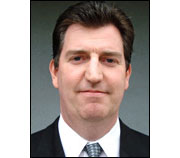Everyday Putinism
For those following the headlines, Putin II may seem progressive. As opposed to Putin’s first tenure, there have been no controversial television station closings, no prominent cases against businessmen and no assassinations. Instead we read about the building of a Jewish history museum in Moscow and improved relations with U.S. diplomats.
But behind this facade, Putinism has grown more ominous. At first glance, it may appear a token of liberalism that the regime has freed a member of the opposition punk group Pussy Riot or a left-wing radical, such as Sergei Udaltsov. In reality, the arbitrary release of one dissident while leaving others in prison has become an effective tool to sow discord among the opposition community. This tactic has succeeded in creating public bickering among the members of Pussy Riot, thus neutralizing its message.
Instead of invasions and overt pressure, the Kremlin has employed back channels to gradually dismantle popular revolutions in neighboring countries. Notably Georgia and Ukraine, which only a few years ago enjoyed vibrant democracies, have now returned to their socialist-transition slumber. The Kremlin has studied well how to exploit “free” elections to increase its geopolitical influence.
Similarly, the Putin regime has become skilled at deflecting international criticism from the powerful conglomerates controlled by Kremlin henchmen. Prominent foreign firms are now given their “cut” in these corporations. In writing about Rosneft and British Petroleum, few foreign journalists even remember to mention Yukos, the company once controlled by fallen oligarch Mikhail Khodorkovsky.
Putin II entails a low-key, creeping purification of Russia’s civil society. In October 2012, the U.S.-sponsored Radio Svoboda, a hallowed bastion of the intelligentsia, stopped broadcasting within Russia, while most of its reporters were fired. It now offers only a few podcasts over the Internet. The same fate has befallen other smaller radio stations.
Russian television, of course, has long been controlled. Current discussion programs feature young provincial women who expose their breasts so as to demonstrate the modern way to meet a man. Meanwhile investigative “journalism” uncovers plots to destroy Russian morality inspired by cosmopolitan gays.
In this desert, there remains only the radio station Echo of Moscow. Reports on Russia by foreign newspapers are more often than not simply translations of Echo of Moscow broadcasts. But it’s an open secret that this radio station is kept on a tight leash by the Kremlin. In practice, this “democratic” station features loud pundits ― from a confusing myriad of perspectives ― wildly denouncing the regime, while at the same time refusing to offer any concrete criticism. The majority of Ekho Moskvy’s “hot” topics, in my own view, seem to be systematically distorted so as to create the impression of free discussion while merely letting off steam. Much of its discussions end with the thought: “Yes, there are problems in our country. Let’s ask Putin to solve them!”
Last month it was announced that the St. Petersburg State Library (Publichka), in a crippling blow, would fire its most valuable employees. The library has long been a citadel of nonconformist thought. Plekhanov and Lenin studied there. In the 1980s, reformers planed how to dismantle the Soviet Union in the library.
Russia’s universities confront an unending stream of budget cuts. The foreign language institute of St. Petersburg (Filfak) has fallen on especially hard times. This institute has long served as Russia’s window to the outside world; some of its graduates are now prominent figures in South Korea.
At the same time vanity propaganda projects such as the Sochi Winter Olympics and notorious boondoggles such as Skolkovo receive limitless streams of money. All this occurs in an atmosphere of wiretapping, hacking, eavesdropping and secret denouncing. Putinism, in its effort to cling to power, is thus steadily breaking the spinal cord of Russian cultural life.
The writer is an associate professor at Dongseo University. Has published a number of articles about Russia in peer-reviewed journals in the U.S., Korea and Russia. His email address is chrismonday@gmail.com. <The Korea Times/Chris Monday>























































